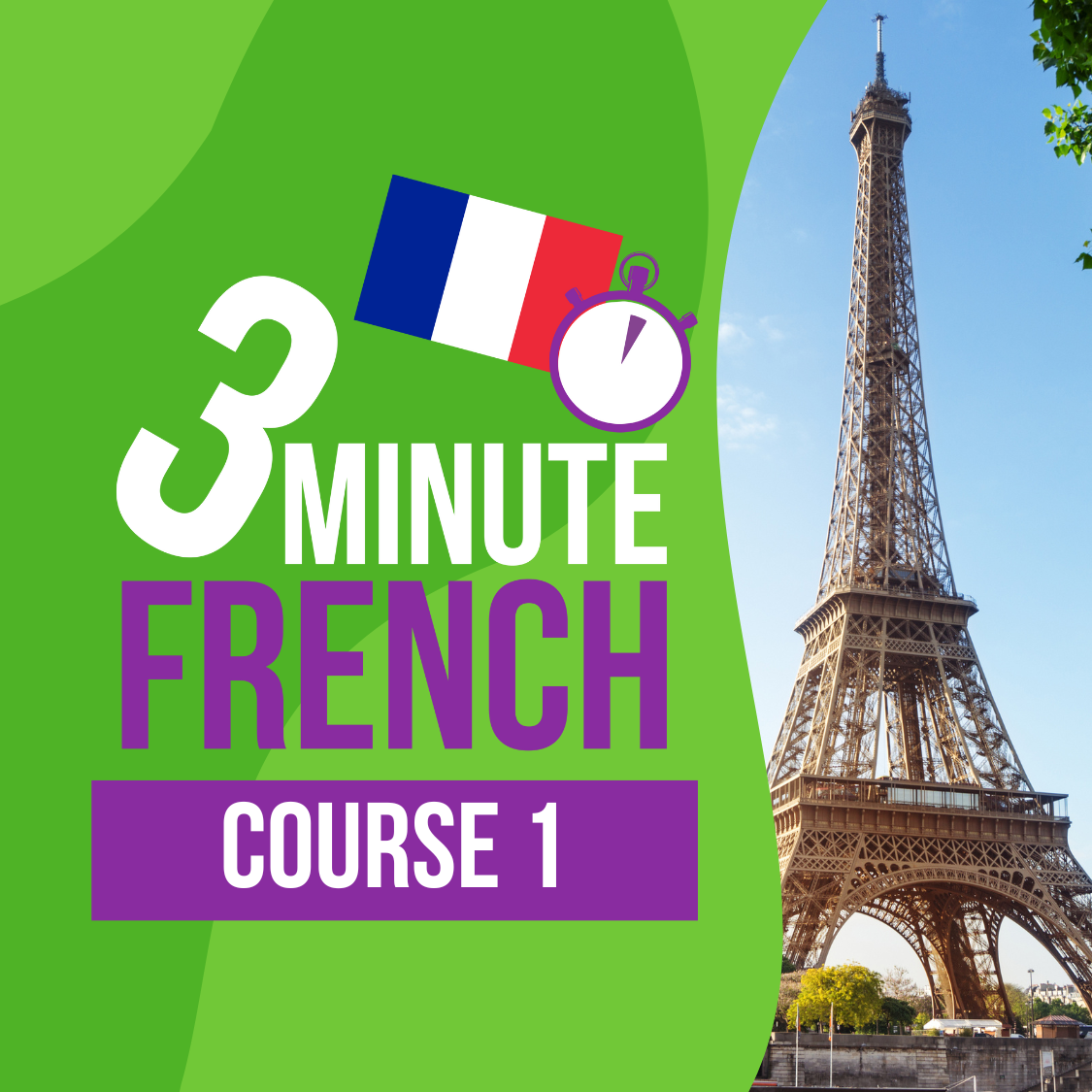
3 Minute French
Course 1
This course contains lessons 1 to 9 of the 3 Minute French series. It's perfect for complete beginners or for those who have tried and failed to learn French in the past. You will succeed with 3 Minute French.
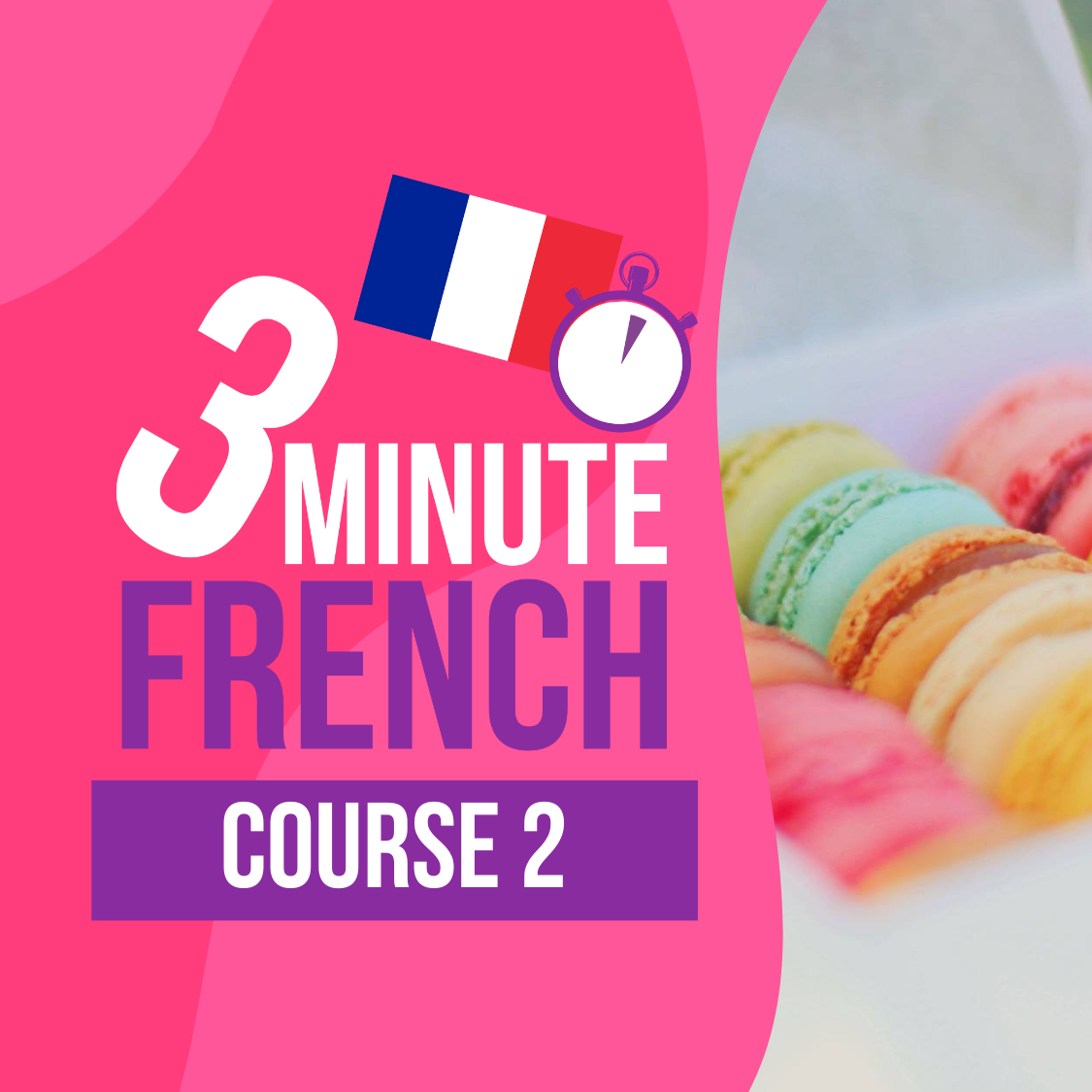
3 Minute French
Course 2
This is the second course in the series, and it contains lessons 10 to 18. You'll learn lots of new sentence structures and how to ask questions in French. Plus, you'll learn about the backbone of any language: verbs.

3 Minute French
Course 3
This course consists of lessons 19 to 26 of the 3 Minute French series, and it really rounds off the first three courses. You'll learn plenty of new words and phrases around many different topics. Plus, you'll find a bumper recap section at the end of this course.
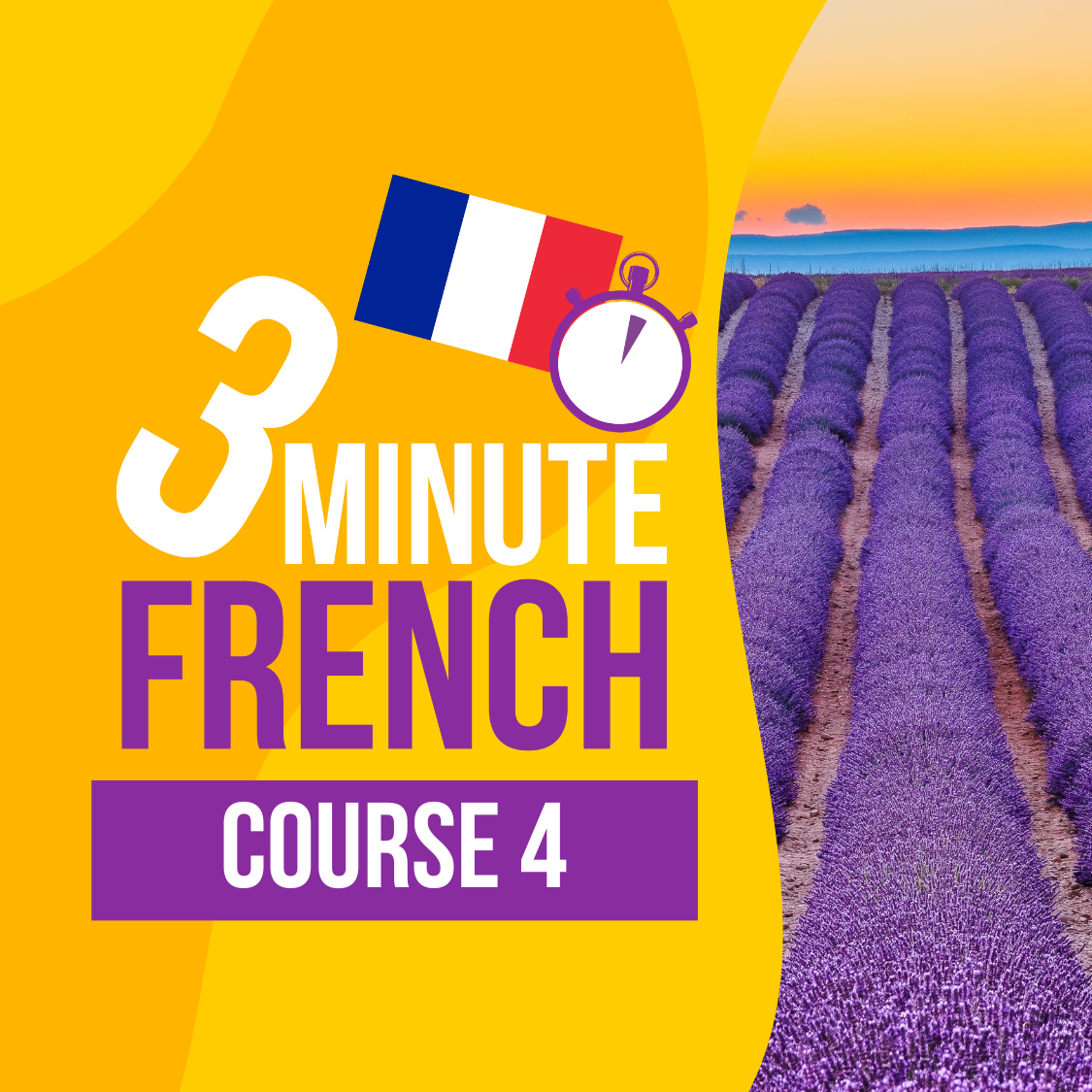
3 Minute French
Course 4
In this fourth course, you'll get lessons 27 to 35. This course moves on from the tourism theme of the first three courses, and you start to venture out into more conversational language. You'll also be introduced to something called Building Structures.
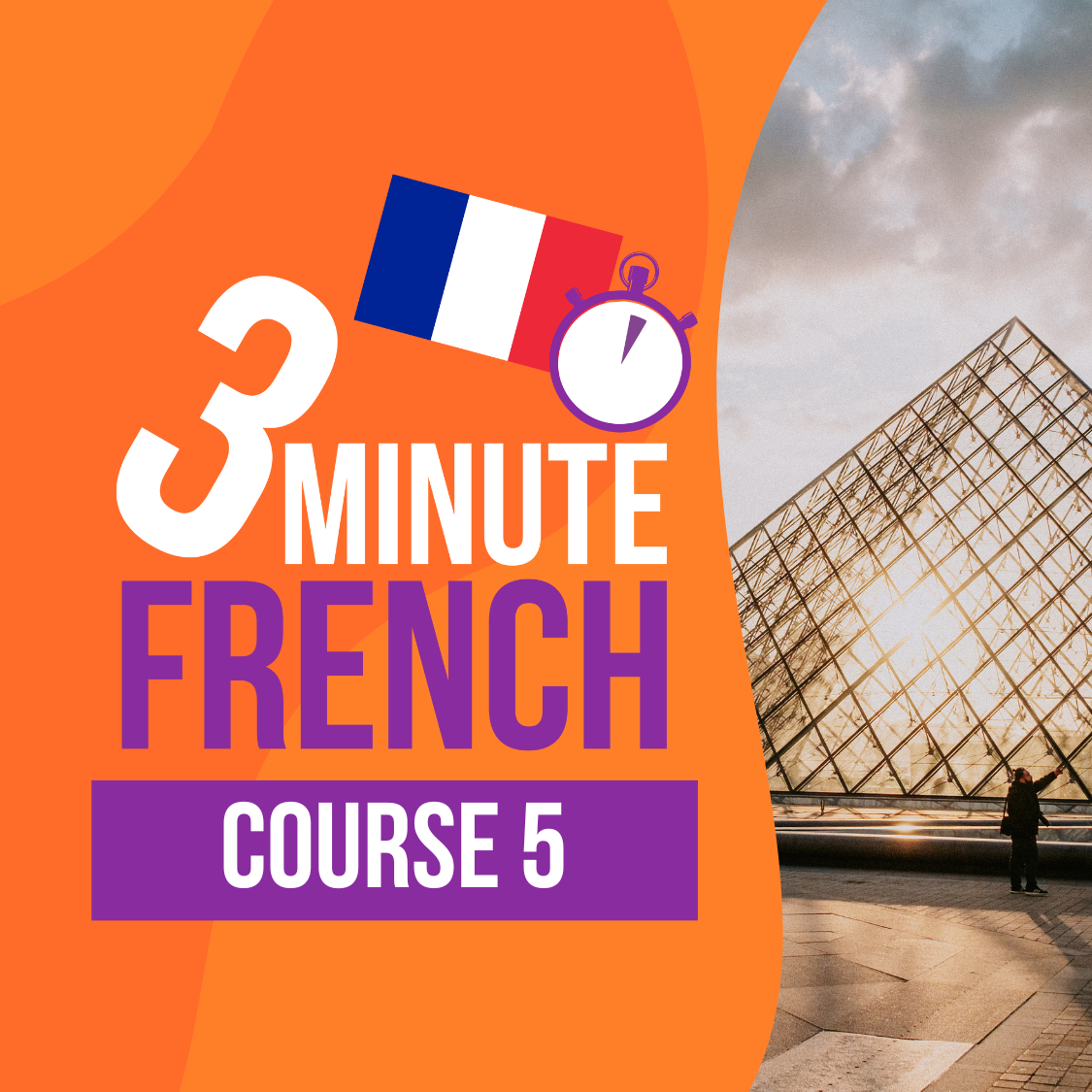
3 Minute French
Course 5
Voilà le cinquième cours - here is the fifth course of the 3 Minute French series, and it contains lessons 36 to 44. In this course, you'll really expand your vocabulary and open up huge new areas of the French language with lots of new adjectives and adverbs. You'll also look at the past tense, aka the present perfect.
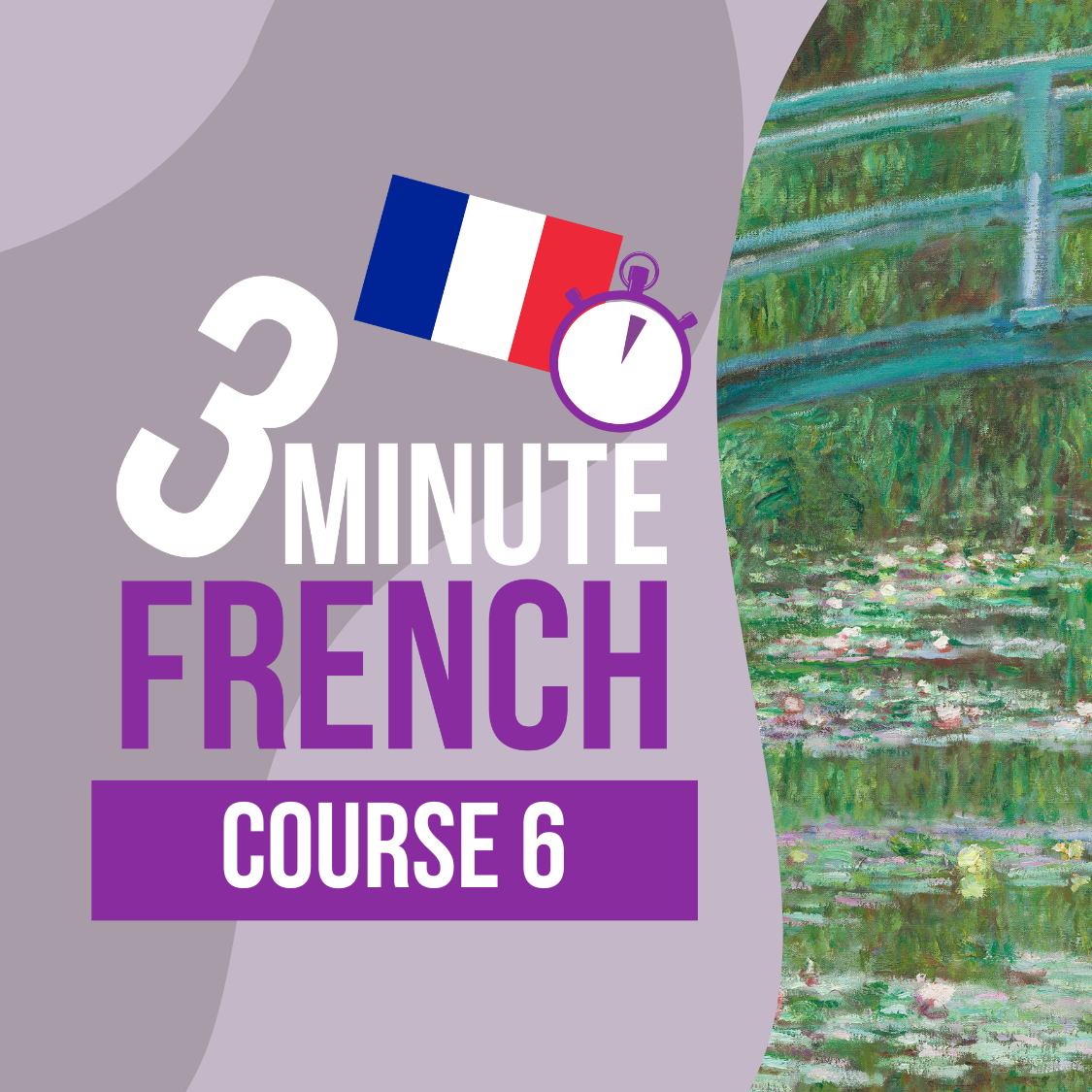
3 Minute French
Course 6
We start this course by recapping the present perfect tense, and then we start to look at different ways to talk about the past. We also look at more object pronouns, the words "de" and "à" in more detail, and how the word "des" sometimes shortens to "de" in negative sentences.
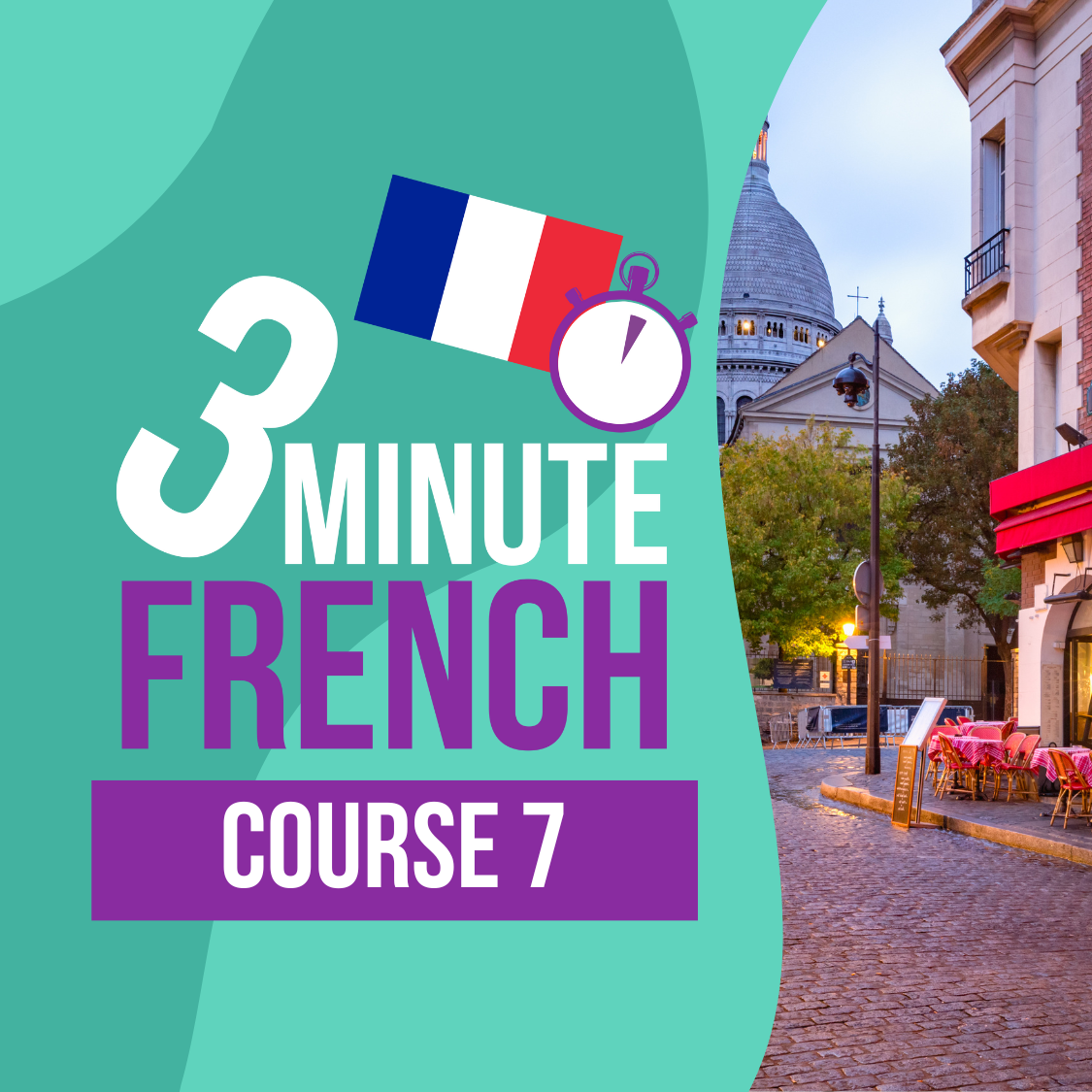
3 Minute French
Course 7
This course contains lesons 54 to 62, and we're going to be looking at lots of useful language features and vocabulary to enable us to speak in even more situations. We'll also be learning two more tenses: present tense and the imperative.
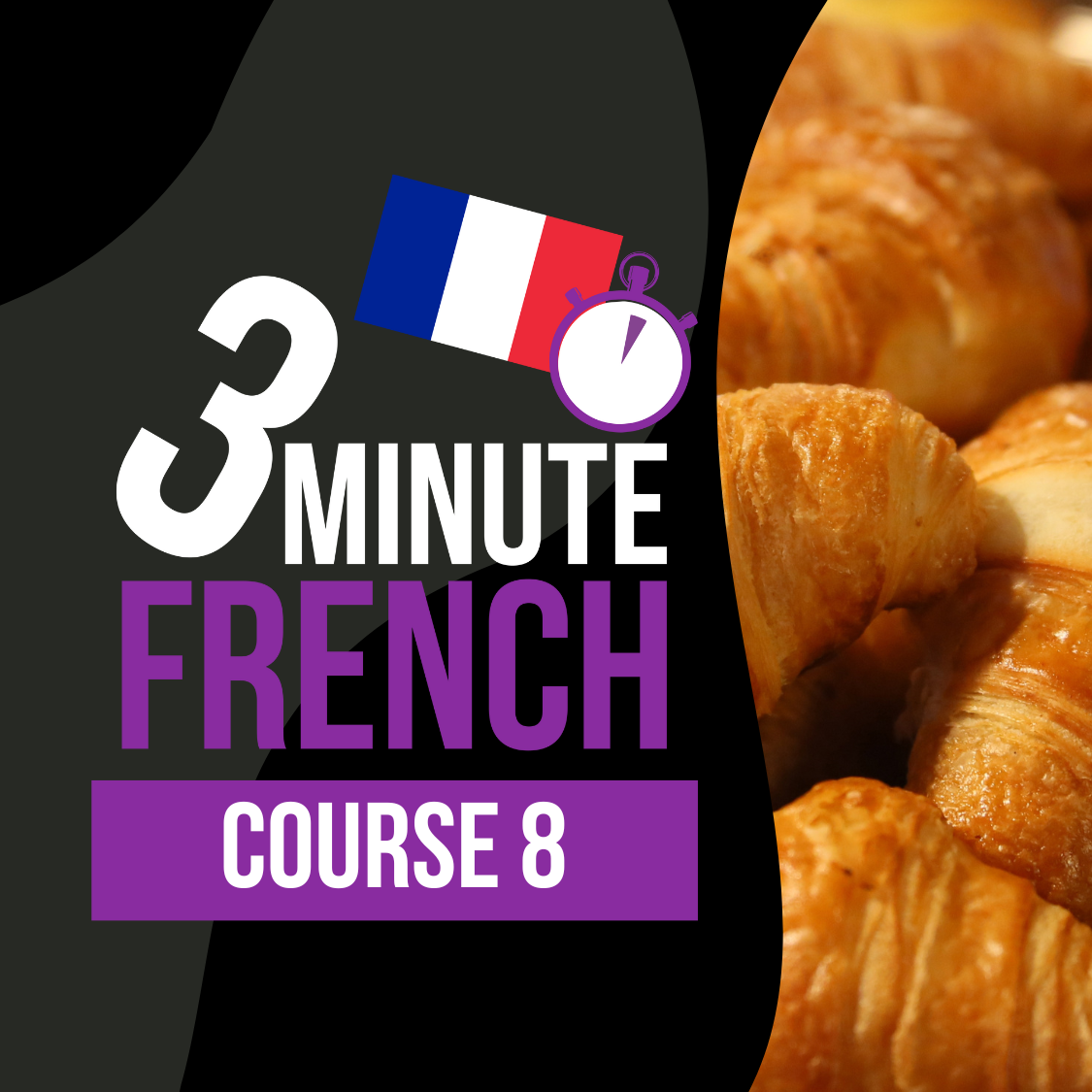
3 Minute French
Course 8
This is the eighth instalment, and it contains lessons 63 to 71. As always, we'll be learning lots of new vocabulary, but we'll also be dedicating an entire lesson to French pronunciation. The pronunciation rules will help you to figure out how to say just about any word you come across in French.
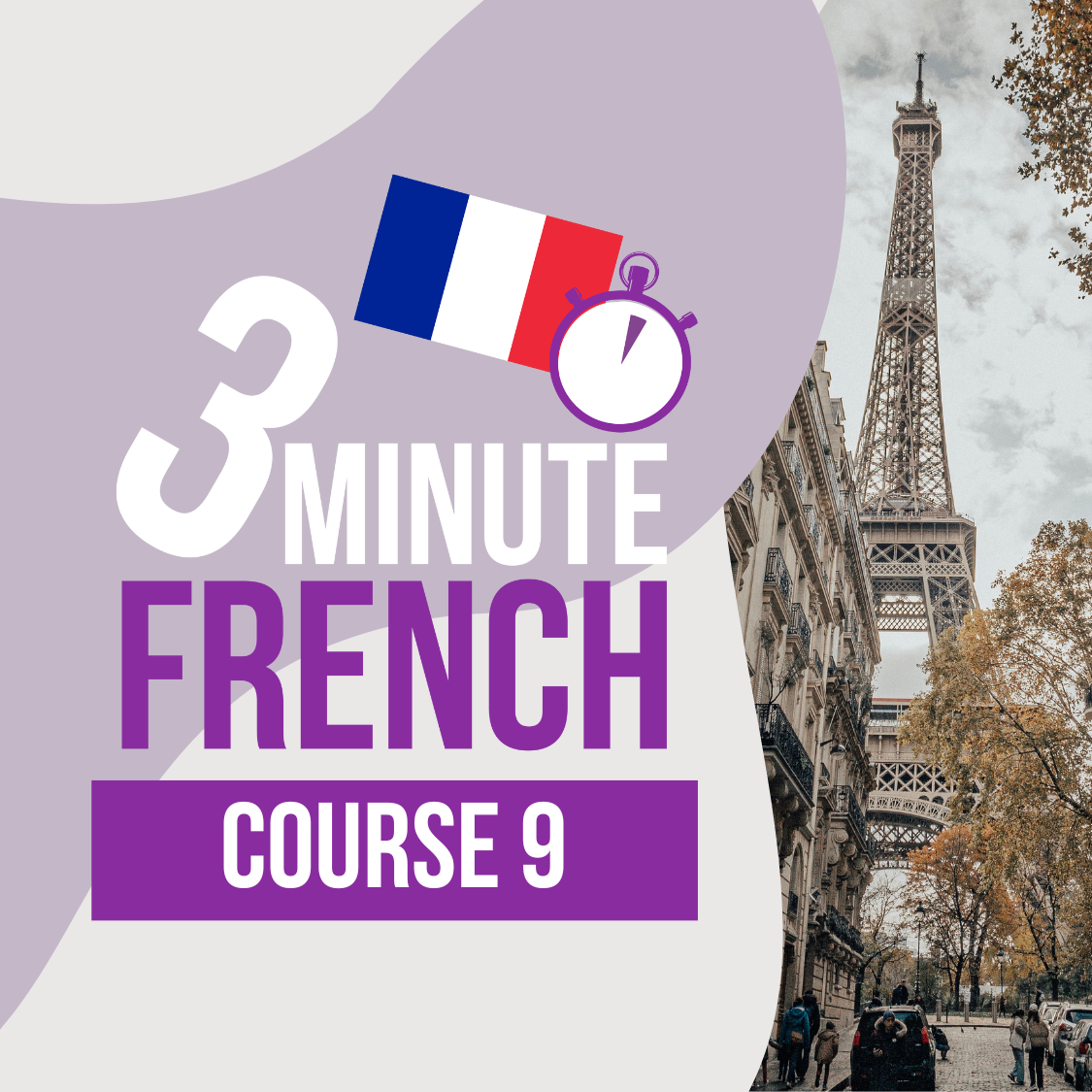
3 Minute French
Course 9
In this ninth course, we'll be going through lessons 72 to 80. We've already learnt the past tense, but we'll be looking at a particular feature of it: Verbs of Movement. We're also going to be looking at some infinitive carriers and some more question words, plus the unusual phrase ce que.
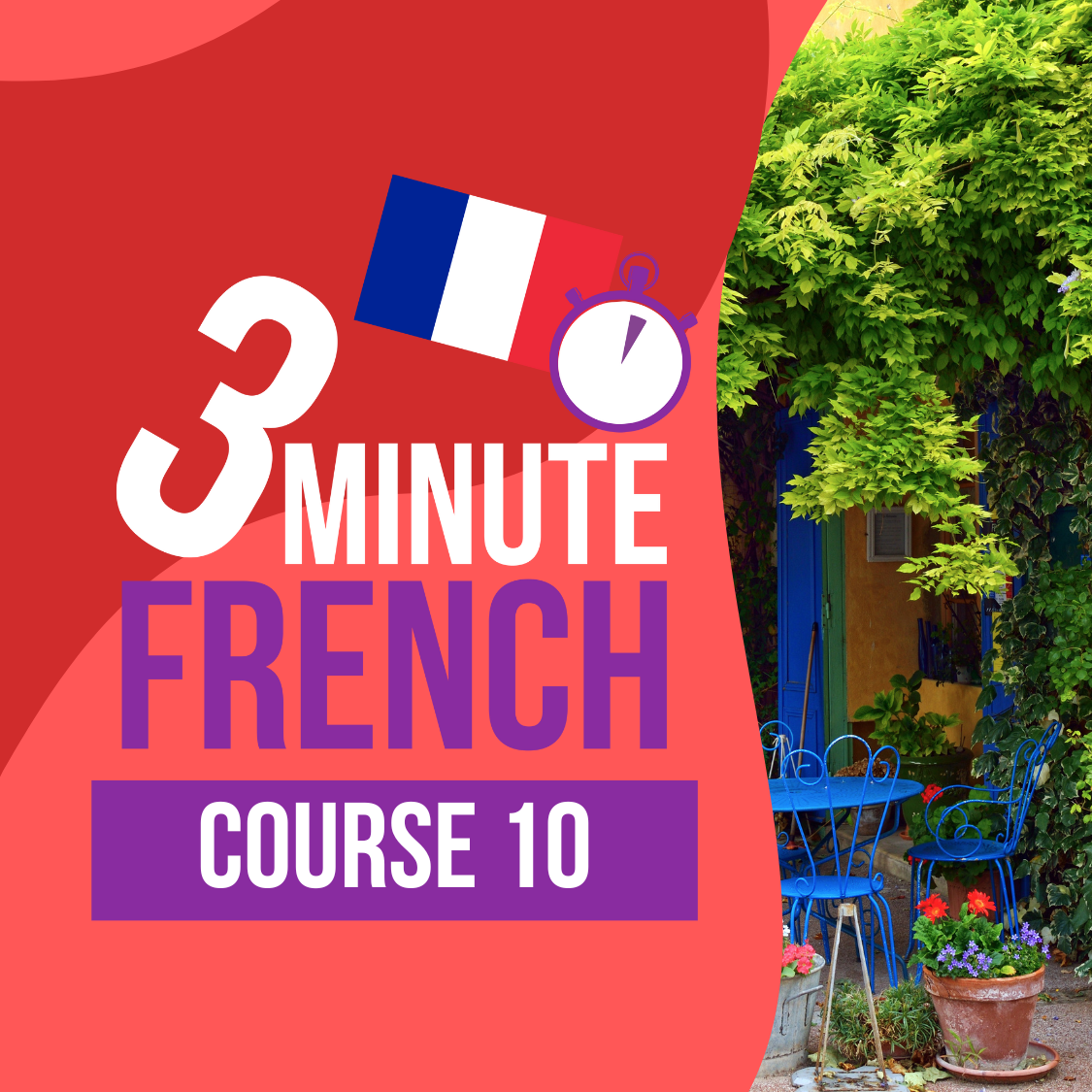
3 Minute French
Course 10
This course has lessons 81 to 89, and we start off by looking at how to make comparisons in French. Additionally, we'll be looking at the topic of the weather, and we'll also be delving into the magical world of "avoir", and how it's used differently in French to how we use "have" in English.
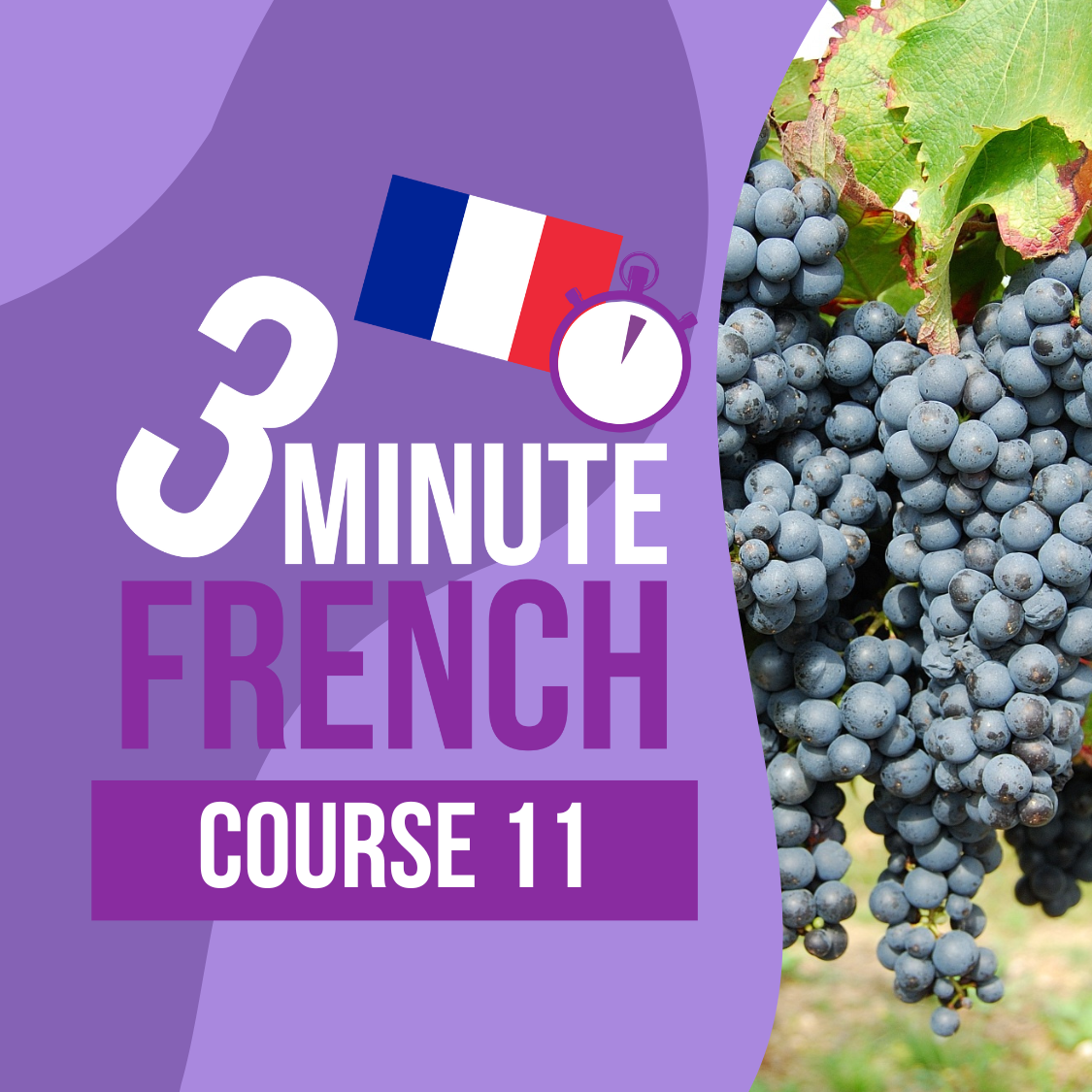
3 Minute French
Course 11
In this course, you'll find lessons 90 to 98 as well as lots of useful French. We start by looking at the difference between "transitive" and "intransitive" verbs, and then we'll be looking at the very useful word: quelque. We'll also be recapping the different ways to say "what" in French.
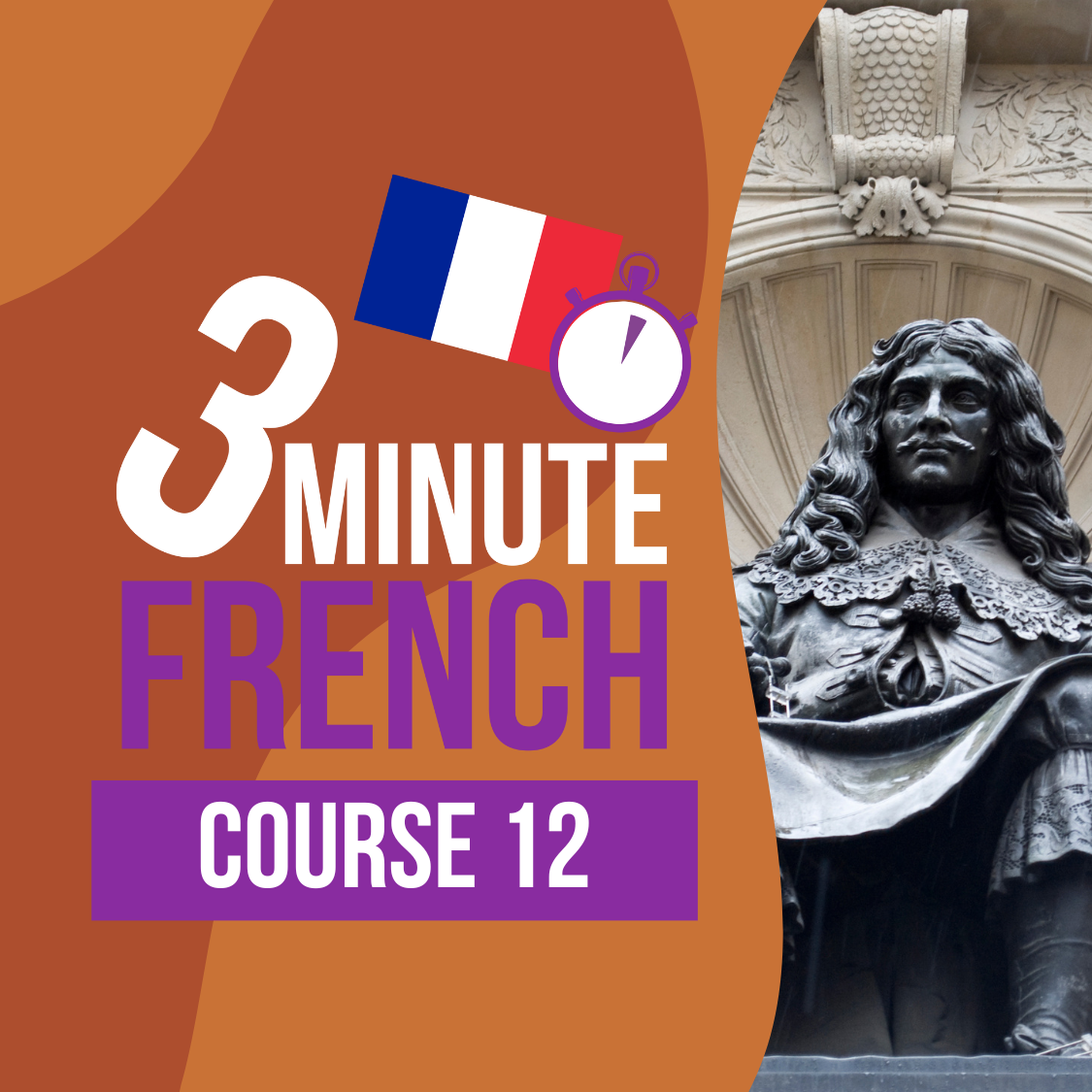
3 Minute French
Course 12
In this course, we're going to be learning lots of ways to talk about yourself, and we'll build some motors out of them. Then we'll be looking at something called reflexive verbs, which we touched on in the last course. As well as that, we'll be looking at how we can use past participles as adjectives, and much more.
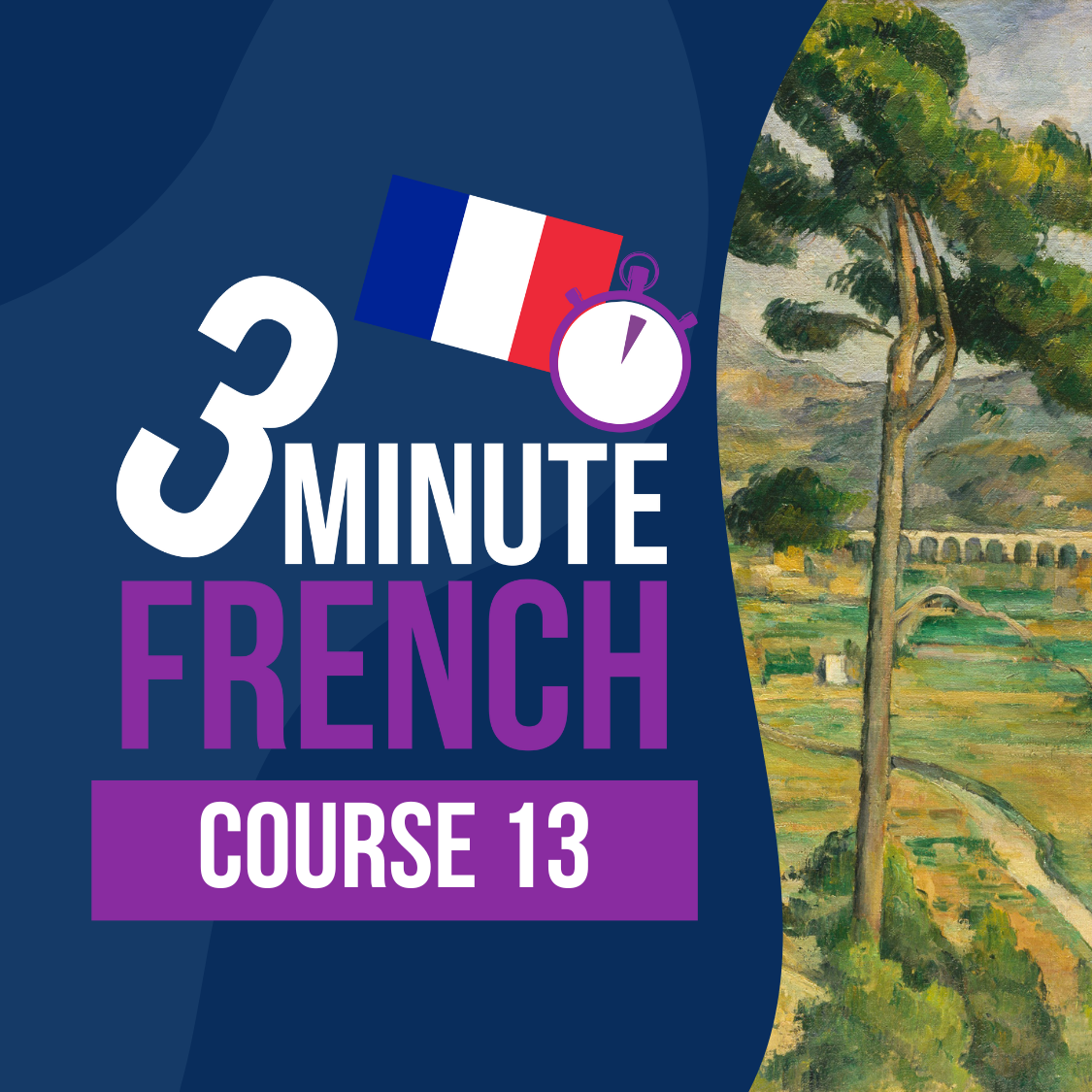
3 Minute French
Course 13
Course 13 consists of lessons 108 to 116, and we start off by looking some more at how to make comparisons; this time, using adverbs. Then, we'll be entering the exciting world of prepositions, as well as learning lots of new vocabulary along the way.
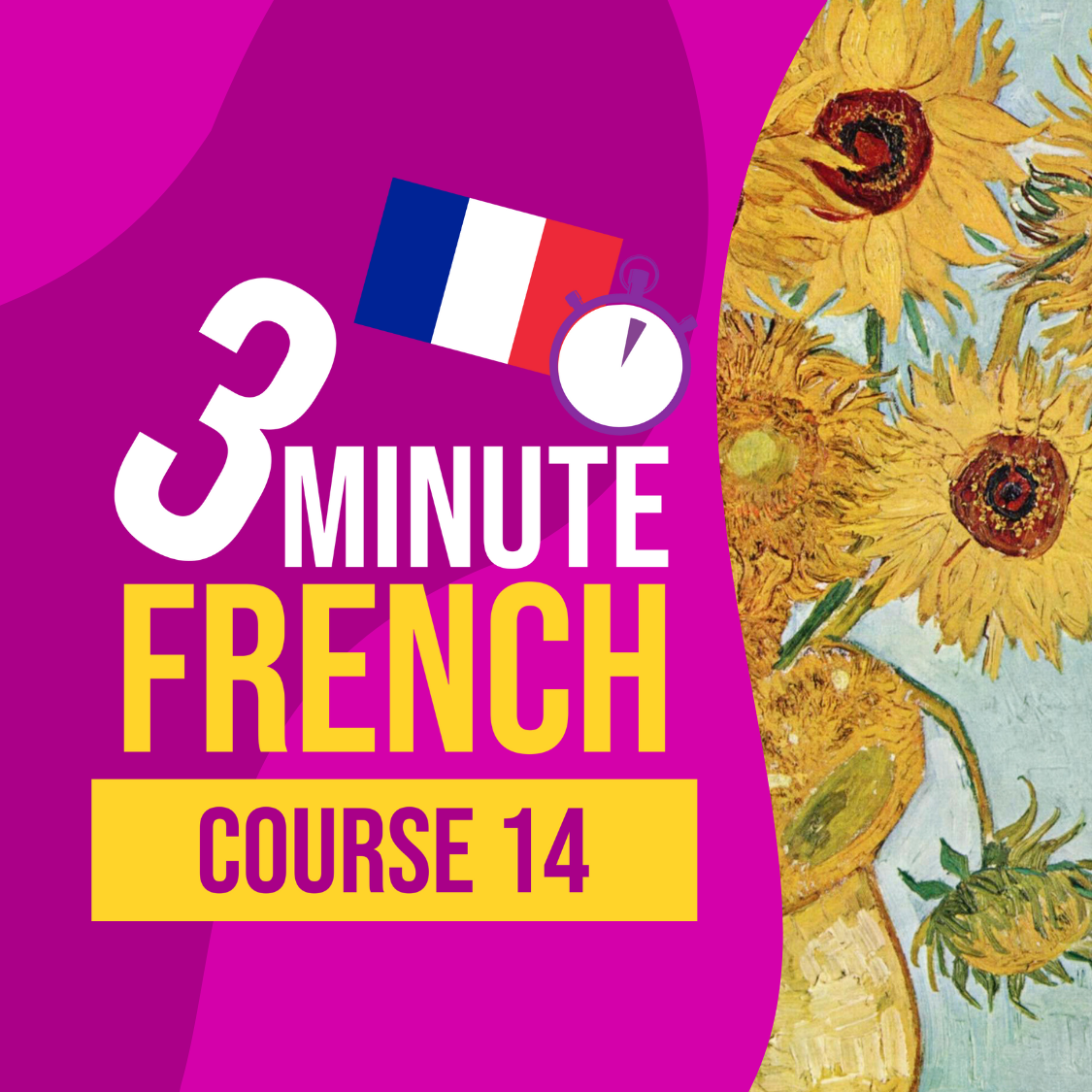
3 Minute French
Course 14
This fourteenth course starts off by looking at how different verbs use different prepositions. We'll then be learning some new phrases, including venir de and ne...rien. In this course, there is also a Vocabulary Expansion Sheet full of words to talk about characteristics.

3 Minute French
Course 15
This course is made up of lessons 126 to 134, and we cover plenty of new verbs, nouns and adverbs. We going to be looking at some new ways to use the verb "faire", the difference between "savoir" and "connaître" (which both mean "to know"), and then lots of different articles. We'll also get a lesson all about cognates, which will help you boost your vocabulary.
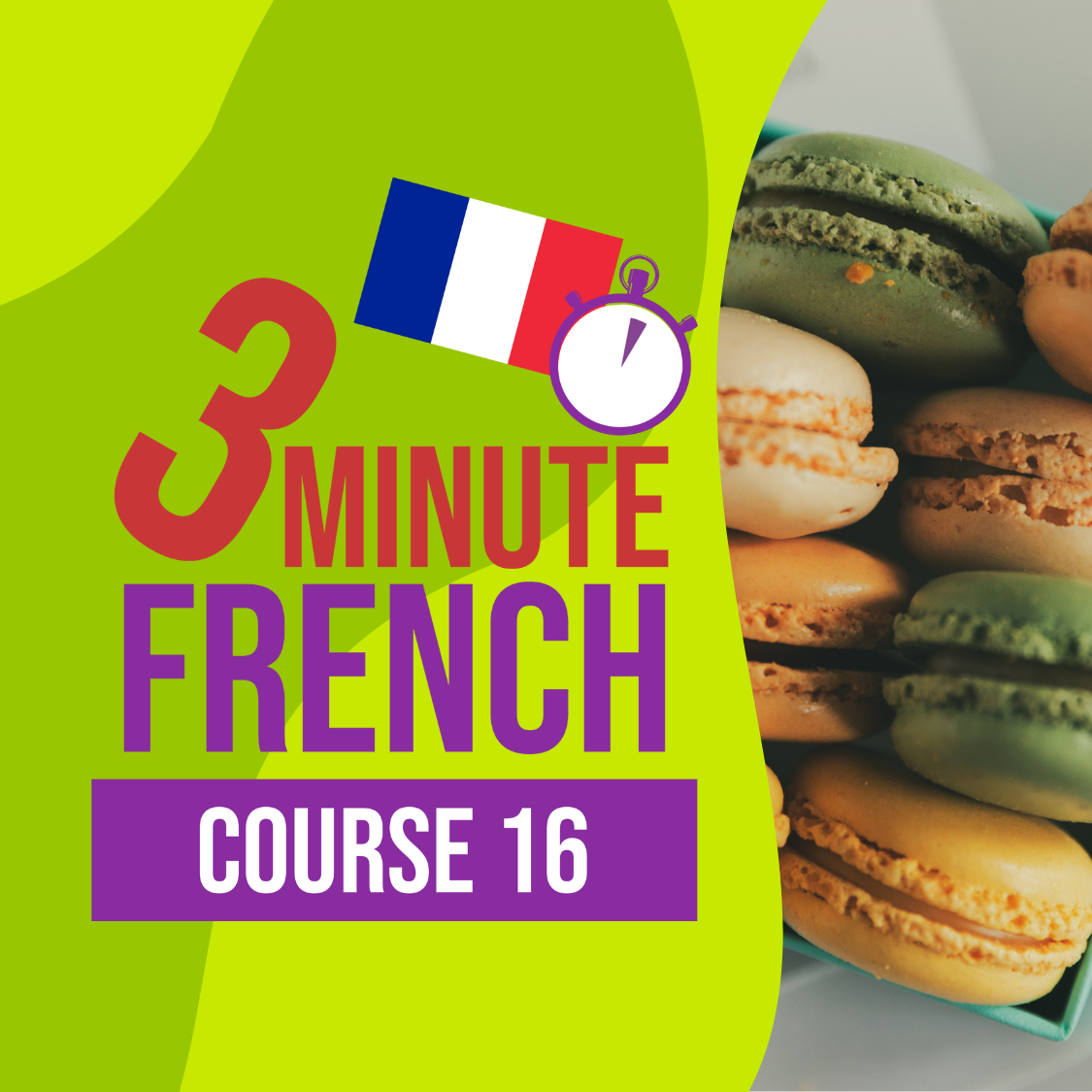
3 Minute French
Course 16
In this course, we start a new learning technique: Comprehension exercises. Every lesson starts with a short text that we can work through together and see what we can learn. We'll also be learning lots of new words and phrases, and we're going to look at a new tense called "the imperfect".
